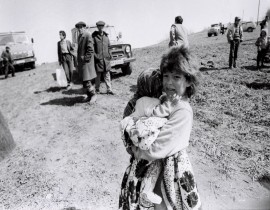Politicon.co
Azerbaijan, Armenia, Nagorno-Karabakh conflict: what is next? An interview with Laurence Broers
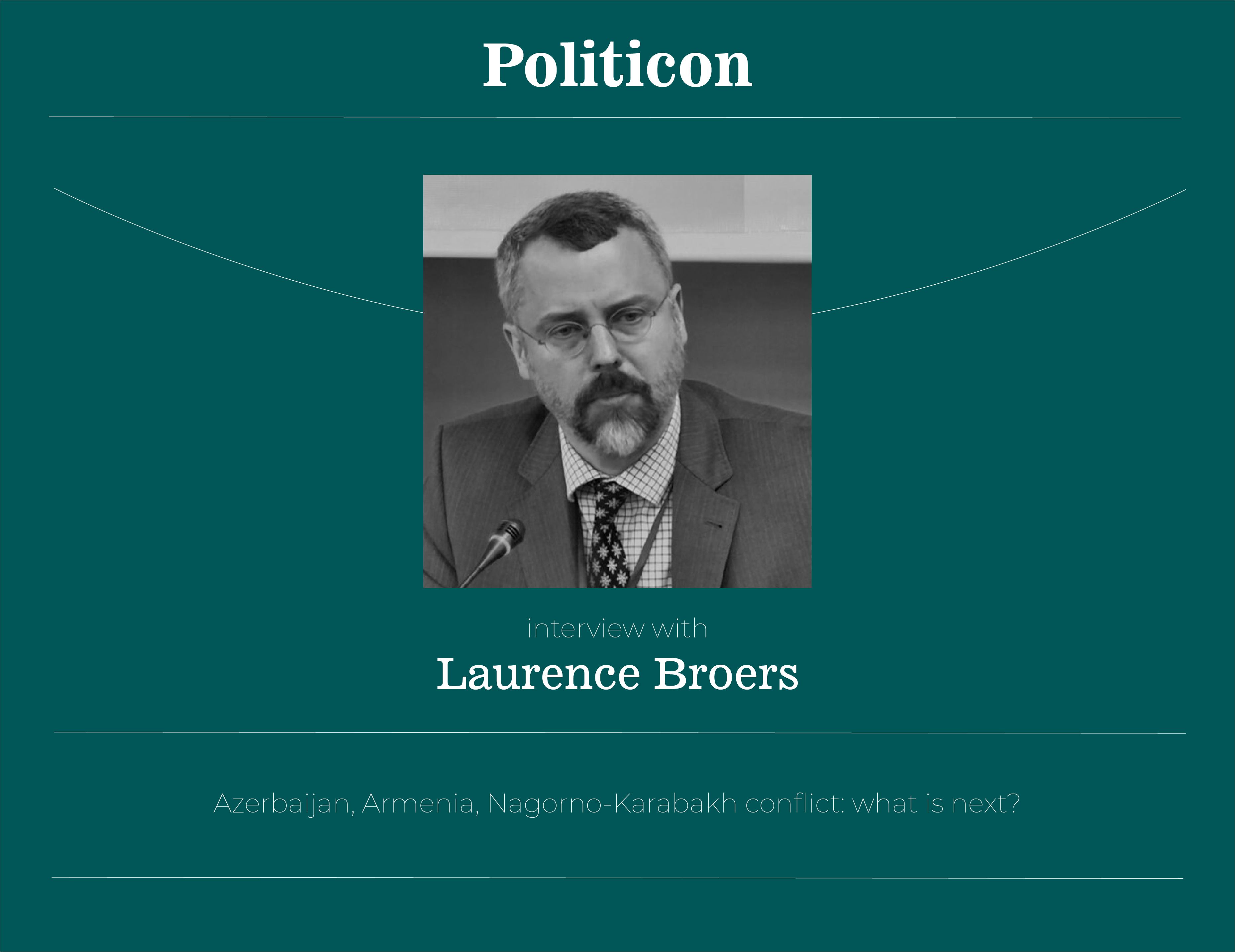
We are glad to present an interview with Mr. Laurence Broers, the Associate Fellow of the Royal Institute of International Affairs (London), research associate at the Centre for Contemporary Central Asia and the Caucasus at the School of Oriental & African Studies (SOAS), and the co-founder and co-editor-in-chief of Caucasus Survey. Murad Muradov talked to Mr. Broers about the current unfortunate situation with the Nagorno-Karabakh peace process and the prospects of the deadlocked conflict between Azerbaijan and Armenia.
In one of your works on the topic of the Nagorno-Karabakh conflict, you have touched upon the issue of emotions being instrumental in its unfolding. Do you think this factor still weighs in?
Yes, indeed I have emphasized the role of emotions as an explanatory factor of ethnic conflict. It is very significant for the micro-theory of conflict, first of all, since it reveals the mechanisms that make people get engaged in communal violence. Actually, emotional ties are intrinsically important for any “imagined community”, speaking in Benedict Anderson’s terms. Coming to the second part of your question, of course currently the conflict is in a very different phase, and the emotions of resentment and hatred intensely experienced in the early 1990s, have crystallized and become part of the prevalent discourse and identity of the both societies.
Touching upon the role of elites, in that very research you expressed the belief that their role in the conflict was exaggerated. Could you make your position more clear?
My understanding of the conflict is that it was a bottom-up phenomenon that Soviet leaders were not in control of, and violence preceded the emergence of new nationalist elites. There was a rapid of succession of leaders who were ejected from power because of the conflict, stretching even up to the forced resignation of Levon Ter-Petrosyan in 1998 – although he was forced out by his closest colleagues in power. This speaks to the fact that as the conflict became protracted the role of elites, of course, increased, and not to the benefit of peace. Over time, the elites took control of the issue as the occasional meetings of the countries’ leaders and foreign ministers became effectively the only working mechanism of the stagnant negotiation process.
Unfortunately, the dynamics of the Nagorno-Karabakh conflict has significantly deteriorated during the last decade. What would you consider to be the main reasons behind this?
Indeed, peacebuilding activities via “people’s diplomacy” were much more common until the late 2000s. Several factors contributed to its deterioration. The economic boom in Azerbaijan provided the Azerbaijani government with a realist strategy against its adversary, namely compelling Armenia into compromise through a growing economic and military asymmetry and leaving Yerevan outside promising regional energy and infrastructure projects. On the other hand, the color revolutions wave of the mid-2000s put many peacebuilding initiatives in an awkward position, since peacebuilding activists were also often human rights and democracy activists. On the Armenian side, a stance less open to territorial compromises traditionally more characteristic of the unrecognized Nagorno-Karabakh Republic (NKR) has increasingly taken hold in Armenia too, accelerated by the violence in April 2016. Grassroots institutions are needed across all societies and communities to root peace, which is hardly possible given the current format of negotiations.
What do you think about the new Armenian government? What do you think its position towards the Karabakh problem is going to be?
As you may know, Nikol Pashinyan was previously an associate of Levon Ter-Petrosyan and prior to the 2008 presidential election, part of his coalition. Armenia’s first president has long nurtured the idea of a “compliant state”, or otherwise, a “normal state” that meant Yerevan should strive to resolve the conflict in a peaceful manner and build normal relationships with Azerbaijan so that the both countries become able to fully benefit from regional and global integration opportunities and strengthen Armenian statehood. There was a strong desire to limit Armenia’s dependence on external powers, including Russia. It seems that Armenia’s new leader internalized this idea, and sees reduced external dependence and a domestic reform agenda as two sides of the same coin.
However, it would be naive to conclude that Pashinyan is more of “a dove” on the conflict with Azerbaijan. Pashinyan made some statements early on about integrating Armenia and Karabakh that aroused Azerbaijani concerns, but it seems likely these were made to consolidate domestic nationalist credentials after the outgoing ancient regime had tried hard to make him look weak on the issue of national security. Recent claims and counter-claims about territorial control in Nakhchivan, and the showcasing of more new weaponry systems in Azerbaijan have narrowed the space for talking about the peace process. And no one can now say for sure what kind of politician Pashinyan really is and what his long-term strategy will be. So, I would not exclude the opportunity that some time later he may indeed take a more constructive position and try to reanimate the negotiations. What is important now is to keep expectations low to be able to estimate even small steps forward should they be taken in future.
In Azerbaijan, and abroad as well, Nikol Pashinyan is sometimes viewed as a “romantic” politician with little government experience. Would you agree with this perception?
I know that some experts tend to view him this way, comparing, for example, with the nationalist presidents of Azerbaijan and Georgia in early 1990s, Elchibey and Gamsakhurdia. I believe this opinion is very reductionist. While Elchibey and Gamsakhurdia came from academic backgrounds and were dissidents with no political experience by the time they were elected, Pashinyan has been long involved in public politics as a member of parliament and well-known as a leader of successive opposition movements and initiatives. He is well-versed in Armenian politics and seems to have come a long way from earlier “firebrand” performances to more pragmatic politics. There are some opinions out there that political immaturity may lead Armenia to aggressive and catastrophic decisions, such as a pre-emptive strike on Azerbaijani positions. I do not think that this is likely in any foreseeable future, as this idea is both irrational strategically and may cause grave consequences for Yerevan, and I am sure the new government is well aware of this.
Why has Armenia, not only as a state but on the societal level as well, been so obstinate and uncompromising?
Armenian society’s vision of the Karabakh problem is very different from the one Azerbaijan has. In their one-sided view, since the very beginning of the conflict it was – as they saw it – about the restoration of historical justice. Some of the tragic local consequences – such as the expulsion of Armenia’s Azerbaijani population, unfortunately, did not weigh strongly in this over-arching vision. As the relative strength of Armenia versus Azerbaijan declined and the country entered a long stagnation period, the Karabakh problem became ever more securitized and the public opinion radicalized: if in the mid-2000s about 2/3 of the population in general supported the return of the occupied regions outside of NK to Azerbaijan, today this figure is less than 10%. So, it would take enormous efforts to at least return to a more conciliatory attitude.
Azerbaijan has consistently reiterated that it is not opposed to the idea of peacekeeper presence along the frontline in principle, just making reservations as to the countries represented in would-be peacekeeping forces. Why do you think any attempts in this direction have failed?
In my opinion, the presence of peacekeeping forces would create mixed outcomes for Baku. Given the current status quo, their constant presence along the frontline will only make the prospect of territorial restoration seem even more distant to Azerbaijan. In fact, keeping constant pressure on the occupied lands is one of the few significant sources of leverage Baku has in the conflict, so one can see a strategic calculus for not giving this up. Deploying peacekeepers would necessitate some meaningful dialogue between Baku and Karabakh, and between Karabakh Armenians and those Karabakh Azerbaijanis that wanted to return. Unfortunately, there are currently few signs that the sides are ready to establish such channels.
Why even at the time of a renewed confrontation between Russia and the West, the Karabakh conflict is not treated similarly to other post-Soviet conflicts it is similar to? If we take the separatist movement in Donetsk and Luhansk, particularly resembling the Karabakh one, it was a reason for quite severe sanctions against Russia that was behind them.
I agree that structural similarities are quite strong, even if many other variables – temporal, geographic – are very different. But double standards, whether we like it or not, are part of international politics everywhere, not only in the post-Soviet space. In the case of Ukraine, as in Georgia, we saw parent states that proclaimed themselves staunch allies of the West and actively sought for Western help against Russian-backed separatism; moreover, in Ukraine we also faced overt annexation on the part of Moscow that created a very dangerous precedent, and the whole area is too close to the EU to be comfortably ignored. Unfortunately, South Caucasus has not attracted so much attention this far. In the Armenian-Azerbaijani context the geopolitical alignments, as well as local circumstances, are different.
Then, do you think it makes sense for Azerbaijan to appeal to international law and the right of territorial integrity as well? Has international law ever worked?
I do not think that Azerbaijan can let go of such arguments. The principles of territorial integrity and uti possedetis, which endorse the primacy of Azerbaijan’s rights over the occupied territories, is universally recognized and remains a strong normative argument. Though international law does not have (and never had) mechanisms of enforcement, it does not mean that it has no authority- we just should not expect such grave and violent conflicts to be resolved by application of law alone. Legal distinctions do not solve conflicts – politics does.
I am afraid we just cannot escape the “elephant in the cupboard” in the discussion on Nagorno-Karabakh. How would you estimate the role Russia is playing here?
As far as I know, both Armenian and Azerbaijani societies tend to overestimate Russian dominance over the problem. Moscow is hardly capable of determining the minute decisions taken by the two countries’ leaders. The 2016 escalation is a good illustration: all facts indicate that it started without Moscow’s knowledge, and its interference a couple of days later served to stop the hostilities. However, Russia pursues a “Russia first” approach in the region, determined to prevent any kind of solution that does not prioritize its own interest - ideally, it would like to see the both countries within the Eurasian Union and CSTO (currently, only Armenia is a member of these organizations). But this dynamic reduces the chances for a positive peace process - it would ideally require Azerbaijan and Armenia being free from the Russian pressure. The logic of hard power encouraged by Moscow tends to exacerbate tensions and intransigence of the two sides.
To wrap up our interview, I would like to ask you to share your expectations about the future development of the conflict. What are the most probable scenarios?
It is difficult and probably inadvisable to make forecasts, since these can often increase tensions and raise the temperature. I would still say that the logic of events today runs against an all-out war, and the continuation of the current status-quo is the most likely outcome, at least in the short and mid-term. Both sides realize that full-scale violence would have unpredictable consequences, foreign actors tacitly approve the current situation, and violent rhetoric often voiced by the two countries’ officials is mostly directed to the domestic audience. At the same time, experience shows that in the Nagorno-Karabakh problem many things depend on the leaders’ personalities and their ability to work together. If Pashinyan manages to garner a constructive relationship with Ilham Aliyev, positive steps could be expected. But of course, too much radicalization has happened within the two societies, and without some re-thinking and trust-building measures any progress would be hardly attainable. So – that brings us back to domestic politics and societies. That is where peace begins.
The views expressed in this interview are the do not necessarily reflect The Topchubashov Center's editorial stance.
![]()
- TOPICS :
- Conflict and peace
- REGIONS :
- Russia and CIS

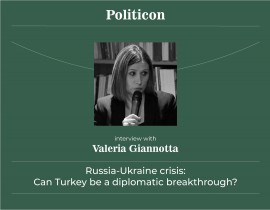
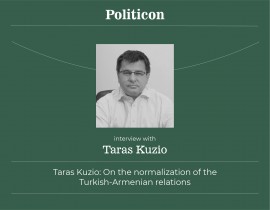
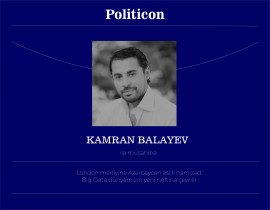
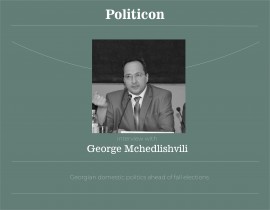
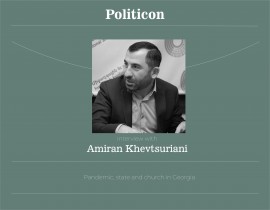

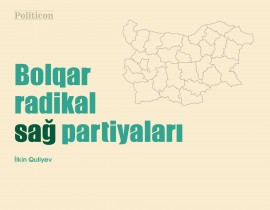
jpg-1599133320.jpg)
